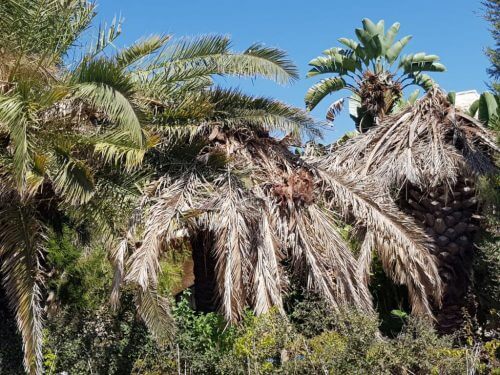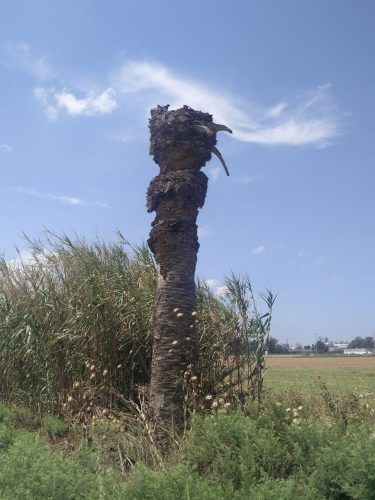The insect is found in most areas where palm trees are grown in the world, and is common in over 60 countries. In some countries, the insect threatens the very existence of the industry as well as the supply of basic food in some countries of North Africa and the Middle East. The Food and Agriculture Organization (FAO) on behalf of the United Nations, which leads international efforts to fight hunger around the world, estimates that approximately fifty million date palm trees are exposed to the palm weevil

PlantArcBio, an Israeli start-up company in the agro-tech field, recently completed advanced experimental processes in the company's laboratories and Eden Farms and submitted a patent application for effective biological substances against the palm weevil. The materials were developed in collaboration with a leading international plant protection company and Prof. Moshe Bar-Yosef. The substances that were discovered, proved to be very effective in experiments done directly on the harmful insect. One of the substances discovered showed a complete killing of all palm weevil larvae within a few days. The companies intend to continue together in the development and commercialization of a preparation against the palm weevil, with the expectation of the first product on the market in about three years.
According to the company, the preparation that will be developed on the basis of the materials that have been successfully tried, will be environmentally friendly, since it is based on biological materials, which specifically harm only the palm weevil, break down quickly after using them, and leave no traces on the fruit.
The palm weevil is the most damaging insect in the world for the palm industry. The insect attacks date trees, which grow on about 14 million dunams worldwide, as well as coconut trees that grow on about 120 million dunams. In addition, a lot of damage occurs to palm trees grown for ornamental purposes, such as the Canary palm. The potential damage of the insect without treatment is hundreds of millions of dollars, and the treatment itself is expensive and harmful to the environment, as well as potentially harming the handlers and the treated trees.

Danger to the food supply
The insect is found in most areas where palm trees are grown in the world, and is common in over 60 countries. In some countries, the insect threatens the very existence of the industry as well as the supply of basic food in some countries of North Africa and the Middle East. The Food and Agriculture Organization (FAO) on behalf of the United Nations, which leads international efforts to fight hunger around the world, estimates that approximately fifty million date palm trees are exposed to the palm weevil.
The solutions that exist today are mainly based on toxic chemicals, given by irrigation, spraying or injection. Despite the spread of the insect and the associated damage, the main development in dealing with it so far has been mainly in the means of detection (dogs, sensors, etc.). On the front of the treatment against the insect, specific and more friendly materials have not yet been developed, and this is where the cooperation between the partners in the project was born.
More of the topic in Hayadan:

2 תגובות
The development is very important but at the same time it is important to consider the cost of treating the tree... There are already very expensive biological treatments that are suitable for gardens with individual trees but not suitable for a farmer who needs to treat thousands of trees. If we assume, for example, that the target price for tree treatment will be $20 per tree (a price that exists today for biological treatment for trees) this is a price that no commercial agriculture can afford
It is unwise to kill larvae in a Petri dish or outside the stem. The point is to inject the substance into the tree in the canary from above and the magole from below in such a way that it will be effective in destroying the pest inside the tree, so far they have not been able to bring together the insecticide and the pesticide in the tree itself in an effective way